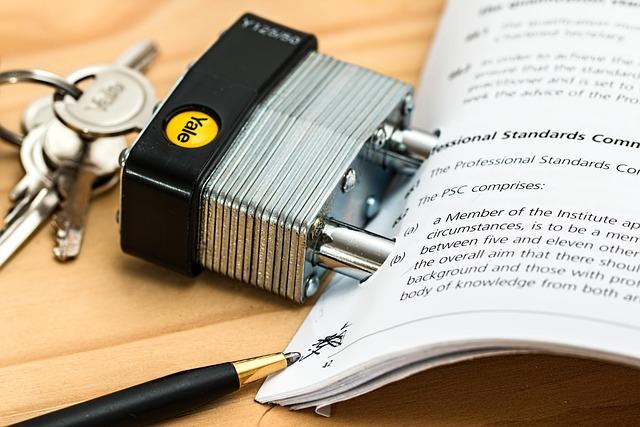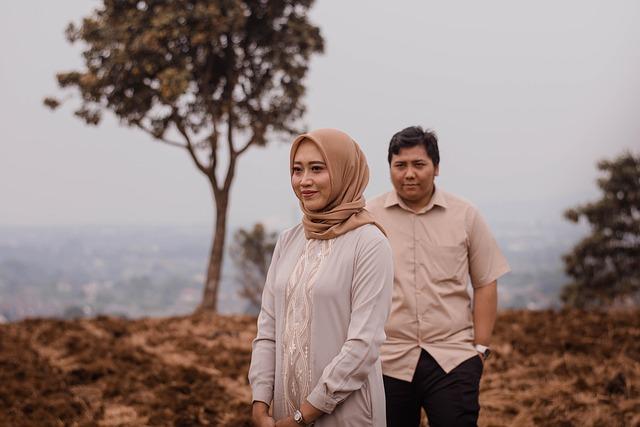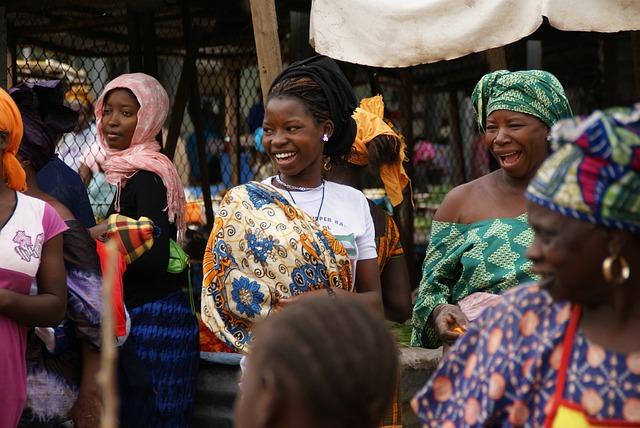Fighting GBV adn FGM in The Gambia: uplifting Women and Girls Through the Power of the Law
In The Gambia, enduring cultural practices and systemic gender-based violence (GBV) have long hindered the rights and well-being of women and girls. Despite important social and economic progress in recent years, these issues continue to cast a long shadow over the lives of many. however, a beacon of hope has emerged through a concerted effort spearheaded by the World Bank, which seeks to address these deep-rooted challenges by harnessing the transformative power of legal reforms. This article explores the multifaceted approach to combating GBV and female genital mutilation (FGM) in The gambia, highlighting initiatives aimed at empowering women and girls, bolstering their legal protections, and fostering a societal shift towards equality and justice. As communities rally together and legal frameworks evolve, The Gambia stands at a pivotal crossroads, poised for a future that values and uplifts its female population.
Understanding Gender-Based Violence and Female Genital Mutilation in The Gambia
Gender-based violence (GBV) and female genital mutilation (FGM) are critical issues affecting the lives, health, and well-being of women and girls in The Gambia. these acts not only infringe upon basic human rights but also perpetuate cycles of inequality and social stigma. GBV encompasses various forms of violence,including physical,sexual,and psychological abuse,often rooted in societal norms that prioritize power and control over womenS bodies. In The Gambia, FGM is a deeply entrenched practice that is justified by cultural beliefs, despite overwhelming evidence of its harmful physical and mental health consequences. The need for legal frameworks and community engagement is paramount to combat this pervasive violence.
To effectively tackle GBV and FGM, a multi-faceted approach is necessary, emphasizing legal recourse, education, and community awareness. Key strategies include:
- Strengthening legal frameworks: Enforcing laws that protect women and girls from violence and harmful practices.
- Public awareness campaigns: Educating communities about the dangers of FGM and the importance of gender equality.
- Support services: Providing essential support systems, such as counseling and medical care for survivors of GBV and FGM.
A collaborative effort involving goverment, NGOs, and local communities can create an environment where women and girls are empowered and protected. By enforcing existing laws and raising awareness of these issues, The Gambia can work towards a society free from violence and harmful traditions.

Legal Frameworks and Their Role in Combating GBV and FGM
In The Gambia, a robust legal framework is essential for dismantling the systemic challenges that perpetuate gender-based violence (GBV) and female genital mutilation (FGM). The foundation of this framework includes both international conventions and national laws that are aimed at protecting the rights of women and girls. Key legal instruments, such as:
- The Convention on the Elimination of All Forms of Discrimination Against Women (CEDAW)
- The african Charter on Human and PeoplesŌĆÖ rights
- The Gambia’s Domestic Violence Act
- The Children’s Act
These laws provide a extensive approach to addressing GBV and FGM through clear definitions, protective measures, and enforcement mechanisms. With these regulations in place, it is easier to hold perpetrators accountable, offer support to victims, and reshape societal norms that tolerate violence against women. Furthermore, collaboration among various stakeholders, including government bodies, non-governmental organizations, and community leaders, enhances the effectiveness of these legal frameworks by ensuring they are well implemented and tailored to the specific needs of the Gambian context.
| Legal Instrument | Purpose |
|---|---|
| CEDAW | Eliminate discrimination against women |
| African Charter | Protect human rights and promote gender equality |
| Domestic Violence Act | Provide legal protection against domestic violence |
| children’s Act | Safeguard the rights of children |

Empowering Women and Girls Through education and Awareness Programs
Education and awareness programs are being championed as vital tools in the fight against Gender-Based Violence (GBV) and Female Genital Mutilation (FGM) in The Gambia. By equipping women and girls with knowledge about their rights and the laws that protect them, these initiatives serve to empower them to stand against these harmful practices.Through community workshops, seminars, and dedicated campaigns, participants learn about the legal frameworks that safeguard their freedoms and the resources available for those who have experienced violence. This education fosters a supportive network where survivors can share their experiences and access guidance from legal experts and social workers.
The impact of these programs extends beyond individual empowerment; they also catalyze community change. Awareness efforts encourage communities to actively engage in discussions on GBV and FGM, helping to dismantle harmful cultural norms. Key objectives of these initiatives include:
- Raising awareness on the consequences of GBV and FGM
- Promoting legal literacy among women and girls
- Inspiring community advocacy for women’s rights
- Building partnerships with local organizations and law enforcement
Through a robust framework of education and legal advocacy, these programs are making strides in transforming societal attitudes and ensuring that the voices of women and girls are heard and respected.

Community Engagement: Mobilizing Grassroots Support Against GBV and FGM
The fight against Gender-Based Violence (GBV) and Female Genital Mutilation (FGM) in The Gambia requires a comprehensive approach, with community engagement playing a crucial role. By mobilizing grassroots support, local communities can become the driving force in challenging these deeply entrenched practices. Through awareness campaigns, educational workshops, and community dialogues, the message that violence against women and girls is unacceptable can resonate more profoundly. Engaging influential community leaders, educators, and local organizations fosters an environment where discussions on the harmful effects of GBV and FGM thrive, encouraging collective action toward cultural change.
Effective grassroots mobilization can be defined by several key strategies:
- Community Awareness: Utilize local media and social platforms to disseminate information.
- Partnerships: collaborate with NGOs and women’s rights groups to amplify outreach efforts.
- Youth Involvement: Engage young people in discussions and activities to promote gender equality.
- Support Services: Establish accessible counseling and legal assistance for victims.
To track progress and impact, community stakeholders can adopt a structured approach to evaluate their initiatives. Below is a simple table outlining potential metrics for assessing the effectiveness of community engagement efforts:
| Metric | Objective | Data Source |
|---|---|---|
| Awareness Campaign Reach | Measure community exposure | Surveys/Media Analytics |
| Participation in Workshops | Increase engagement levels | Attendance Records |
| Reported Cases of GBV/FGM | Assess impact on incidences | Local Health Reports |
| victim Support Enrollment | Expand access to services | Program Enrollment Data |

Strengthening Law Enforcement and Judicial Responses to Protect Victims
effective law enforcement and judicial frameworks are paramount in addressing gender-based violence (GBV) and female genital mutilation (FGM) in The Gambia.Specialized training for law enforcement personnel is essential to ensure sensitivity and efficacy when handling cases involving victims. Suggested strategies include:
- Dedicated Units: Forming specialized units within police departments that focus exclusively on GBV and FGM cases.
- Community Engagement: Raising awareness and building trust with local communities to encourage victims to come forward.
- Collaborative Training: Partnering law enforcement with ngos and legal aid organizations to provide comprehensive training on legal rights and victim support.
Moreover, the judicial process must be fortified to protect victims and ensure justice. This involves the implementation of victim-amiable court environments that facilitate testimonies without re-traumatization. Key components to consider include:
- Legal Reforms: Updating laws to eliminate loopholes that may hinder prosecution of GBV and FGM.
- Support Services: Providing psychological and legal assistance to victims throughout the judicial process.
- Monitoring Progress: Establishing oversight mechanisms to track the handling of cases and ensure adherence to legal protocols.

Recommendations for Policy changes and International collaboration
In order to effectively combat gender-based violence (GBV) and female genital mutilation (FGM) in The Gambia, comprehensive policy reforms are essential. Policymakers should consider the following strategic measures:
- Strengthening Legal Frameworks: Revise and enforce laws targeting GBV and FGM,ensuring stringent penalties for violators to deter future offenses.
- Promoting Women’s Rights: Implement policies that prioritize women’s rights and integrate gender perspectives into all legislative processes.
- Improving Access to Justice: Establish legal aid services specifically for survivors, making it easier for victims to seek justice.
- Incentivizing Reporting: Develop programs that encourage individuals to report incidents without fear of stigma or retribution.
International collaboration is paramount in addressing these pressing challenges. Engaging with global and regional organizations can provide vital support in various forms:
- Knowledge Sharing: Facilitate workshops and conferences to share best practices and innovative strategies in combating GBV and FGM.
- Resource Mobilization: Partner with international NGOs to access funding for grassroots initiatives aimed at safeguarding women and girls.
- Cultural Exchange Programs: Encourage cross-border initiatives that promote community awareness and foster dialog to change harmful societal norms.
- Monitoring and Evaluation: Collaborate with international agencies to establish monitoring systems that evaluate the effectiveness of implemented policies.
Concluding Remarks
the fight against gender-based violence (GBV) and female genital mutilation (FGM) in The Gambia is not merely a challenge but an opportunityŌĆöa chance to reaffirm the rights and dignity of women and girls. The initiatives spearheaded by the World Bank, alongside local stakeholders and international partners, illuminate a path toward significant social change. By harnessing the power of the law, educational programs, and community engagement, we can empower women and girls to reclaim their voices and rights, thereby fostering a culture of respect and equality.As we move forward, it is crucial for all members of society to stand united against these deeply entrenched practices. The collective effort to uplift women and girls not only enhances their lives but serves as a catalyst for sustainable development and progress in The Gambia.Embracing these changes will not only benefit individuals but will also pave the way for a more equitable society, where the promise of a brighter future can be fulfilled for generations to come.Together, let us continue to advocate for justice, education, and empowerment, ensuring that the fight against GBV and FGM remains a national priority.







